The Future Of Gator Trout – Introducing Release Over 20″ Initiative
- By: Joseph Simonds
- on
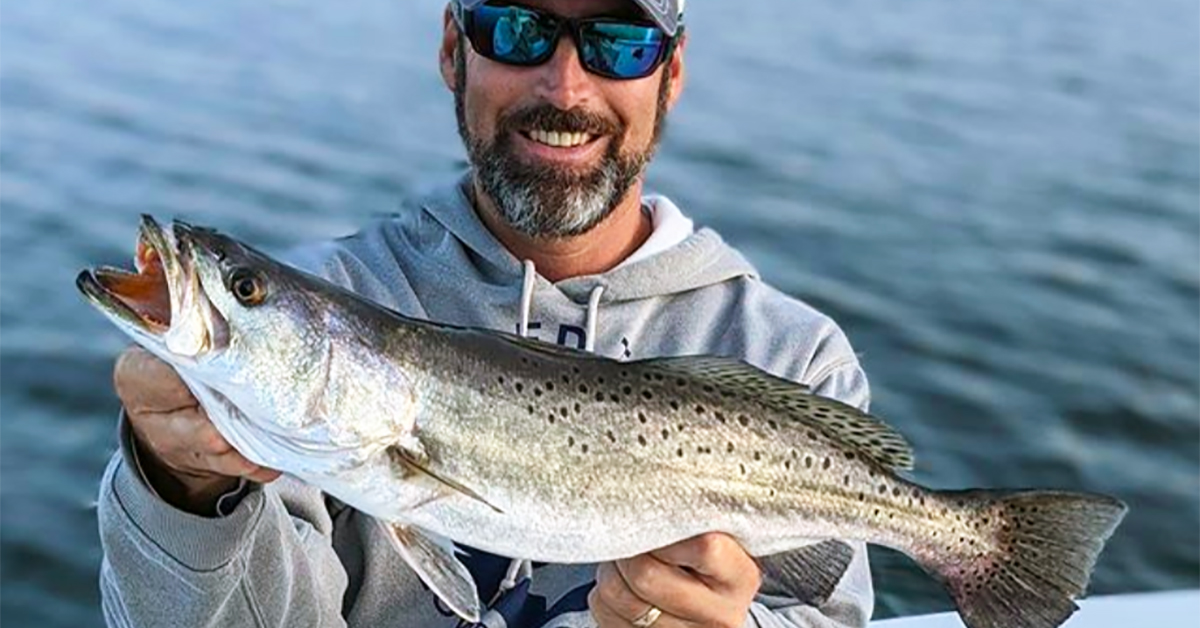
Did you know that almost every speckled trout over 20 inches is a female?
And did you know that only 0.8% of trout will live to 4 years old and grow 20″ long?
Here’s the real kicker…
The larger the trout, the more eggs she can reproduce… and the larger she is, the more likely her offspring will grow to become large gator trout as well (just like two super-tall humans have a much more likely chance of having tall kids).
Catching big trout is rare, and if we’re not careful, it will become even rarer…
The truth is, fish habitat is declining, water quality is declining, and fishing pressure is increasing.
We hear all these stories about fishing back in the day… how many fish there were, and how big they were.
Well, if we don’t make a change, things are just going to get worse.
So what can we do?
We can take conservation into our own hands.
We don’t have to rely on our state laws to tell us what we can’t keep because, in some states, the limits aren’t strict enough.
For example, in South Carolina, there is no upper limit for speckled trout.
But a trout over 20″ releases 20 million eggs per season, so for every trout over 20″ that’s kept, that’s 20 million fewer eggs released into the estuaries in the next year alone.
Compare that to an 11″ trout that only releases three million eggs, and you can see how valuable these big trout are.
And that doesn’t even take into consideration the fact that eggs from a big trout are more valuable because these fish are proven to live long and grow large.
This is why Dave Fladd, cofounder of Eye Strike, started the Release Over 20 Initiative.
He set his own limits for himself and now releases every trout over 20″.
This Release Over 20 Initiative has been catching a lot of momentum, as other anglers who also want to see a better future of fishing are coming onboard.
Now he’s not saying you should never keep trout, but if we all take a stand, keep fewer trout, and release the big ones, the future of fishing is much brighter.
Check out this podcast interview with Dave below to learn more about the Release Over 20 Initiative and how you can make an impact today.
You can listen to this episode by clicking the play button below, or on iTunes, Stitcher, or Spotify.
P.S. Don’t forget to subscribe on iTunes, Stitcher, or Spotify and leave us a review!
The Future Of Gator Trout [PODCAST]
Note: Don’t forget to subscribe to the Salt Strong podcast on iTunes, Stitcher, or Spotify and leave us a review!

Related Podcasts:
Conclusion
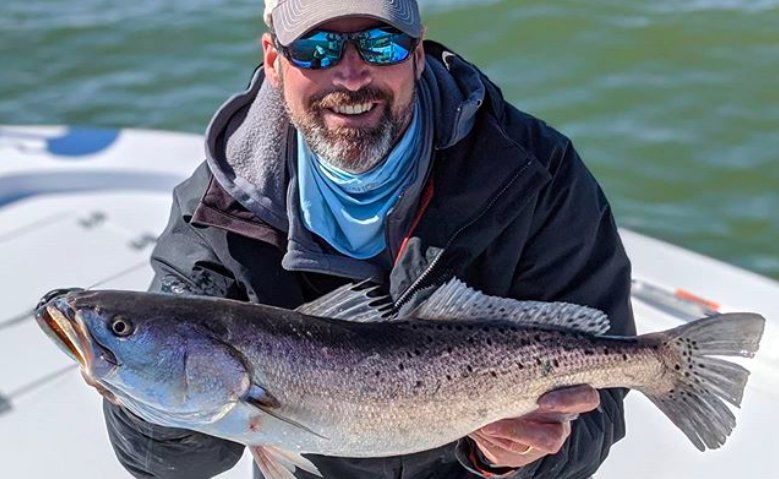
I love that Dave is getting the Release Over 20 Initiative going and that he’s getting so much support.
If we can all stand behind this, release the bigger fish, and only keep what we need, the future of fishing can be great again.
I would love to get back to the times where fishing is so bountiful, people these days won’t believe the stories.
But if we don’t make a change, our fisheries will only get worse.
What do you think about the Release Over 20 Initiative?
Let me know in the comments below!
You can learn more about the Initiative by following them on Instagram @releaseover20 and be sure to check out EyeStrikeFishing.com.
P.S. Want access to our best fishing spots and tips, plus discounts to our online tackle store? Click here to join us in the Insider Club!
Stop Wasting Your Valuable Time On The Water!
Do what the “SMART ANGLERS” are doing and join the Insider Club.
Here’s what you’ll receive today when you join:
- Weekly fishing reports and TRENDS revealing exactly where you should fish ever trip
- Weekly “spot dissection” videos that walk you through all the best spots in your area
- Exclusive fishing tips from the PROS you can’t find anywhere else
- 20% OFF ALL of your fishing tackle (rods, reels, line, lures, and more from ALL of the biggest brands in America)
Click here to join today.
Related articles:
Related categories:
STOP WASTING TIME ON THE WATER!
Do what the “SMART ANGLERS” are doing and join the Insider Club.
Here’s what you’ll receive today when you join:
- Weekly fishing reports and TRENDS revealing exactly where you should fish every trip
- Weekly “spot dissection” videos that walk you through all the best spots in your area
- Exclusive fishing tips from the PROS you can’t find anywhere else
- Everything you need to start catching fish more consistently (regardless if you fish out of a boat, kayak, or land).






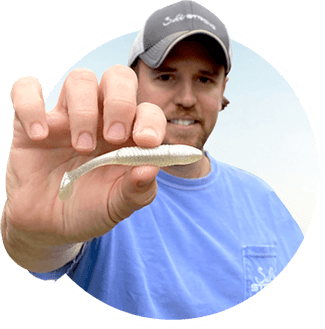
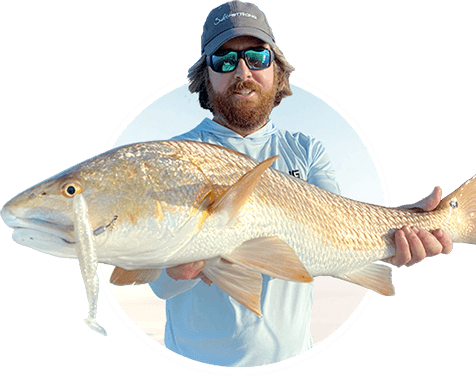
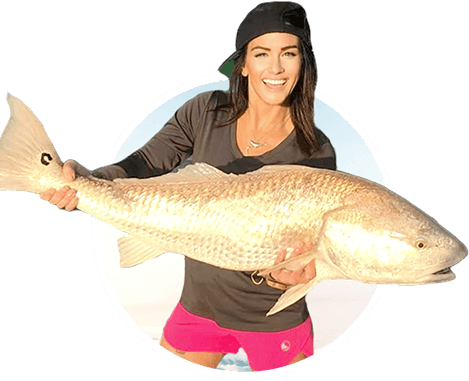
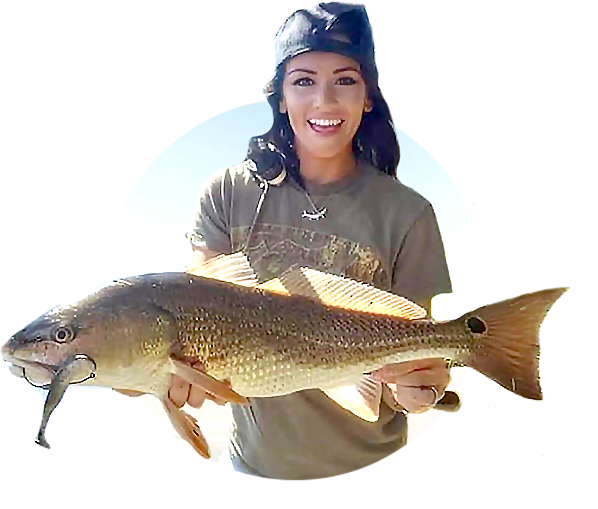
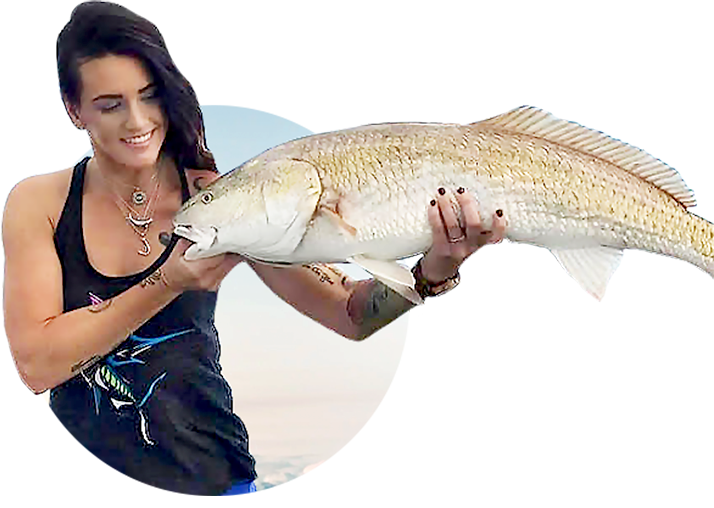
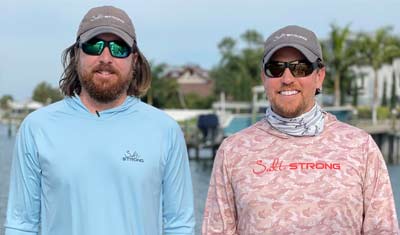
I finally got around to listening to this podcast. Glad to see this initiative. I adopted my personal “release over 20” a couple of years ago. The largest trout caught on my boat was 27 1/2 inches, by my brother in law. He was definitely surprised when I insisted we release it. Dave’s approach is good one. I think the Salt Strong family can really help if we get on board.
If you think a 20″ trout is a gator you have a different problem on your hands.
If I’m fishing I always have 1 of my kids if not all 3. Almost all of the fish we eat, which is quite a bit, is fish we catch. I’ve enjoyed teaching them all aspects from catching, cleaning, cooking, and conservation. This is a great initiative to help teach them the conversation aspect. I just purchased 10 decals from eyestrikefishing.com that just might end up in some various locations around the boat ramps that I frequent. Help spread the word!
Thank you Travis, we have noticed several people who have purchased a stack of stickers and we were curious how they were being used. Appreciate it!
I am loving your recent posts regarding trout and the need to take on the responsibility of the conservation of the resource ourselves. I have made numerous posts, especially early in our group’s beginnings, regarding killing limits of various species. Like many, I enjoy eating fish. But I enjoy catching them more. I usually eat offshore species and release all flats catches because of the damage that has been done to its habitat. .8 % of trout reach 20”, that’s incredible. Think what it takes to replace each limit of trout harvested?
It is great to see you begin to stress the importance of catch and release again. I am hopeful Salt Strong members will heed the guys advise. Keep a few for dinner, release the rest. You will be doing our share to keep the sport going for future generations. Thanks again for the great information.
Great idea! I always release over 20 &. I rarely keep smaller fish (16 – 18”). I can also say I release 98% of all the fish I catch.
Another great Pod Cast with some great info, I am there with the idea.
I really love this idea. I’ve seen my trout catches slowly decreasing over the past 25 years. While we do catch trout I’ve been releasing 95% of the trout we catch. Other members have mentioned that they don’t freeze their fresh catch, I’m a believer as well. Great podcast!
To: Salt Strong
From: Calvin Payne
Re: Biology Behind Conservation (Or Lack Thereof!)
Hopefully, someone will listen to what I am sharing as a scientist. I have a BS degree in Biology/Biochemistry and MS Degree in Molecular Biology. For my BS degree, I also did my capstone research in Ecology and was my first time realizing how much damage humans are doing to the environment. That was mid 1976 when fish were 20 times more abundant than now!
It is not just environmental damage that is threatening popular sport fishing but the wildlife laws and regulations themselves in parts of the country. What I have noticed all across the southern United States (unlike some northern states) is that fish conservation regulations are completely backwards, archaic, not based upon science or even common sense, and are actually a big part of the problem. This is the one major reason many popular game fish are becoming more scarce, and it is obvious that the conservation regulations are not working in the entire southern United States.
Here is some evidence. When I was working and living in Bowie, Maryland near DC, I noticed that State of Maryland Fish and Wildlife fishing regulations were just the opposite of what is being done in the southern United States. In Maryland you can keep the smaller and mid-sized fish of trout bass, and other game fish, but you had to throw back the larger, full adult fish of a certain size. Guess what? The fish are on the comeback in Maryland. There were no shortages of rainbow trout and other game fish where I fished and all over Maryland. On the contrary, fish were plentiful!
As I deeply thought about this, the regulations in Maryland made perfect sense and were apparently based upon science, not just someone’s emotions. They compliment what happens naturally. In nature, to assure the survival of any species, especially with fish, amphibians, and reptiles, breeding adults lay dozens if not hundreds of eggs that hatch. There is always a huge abundance of juveniles that survive to adulthood. On the other hand, older and larger adults naturally die off but are only slowly replaced by the more abundant mid-aged individuals. Add to that more pressure from fisherman being encouraged to keep the larger, more mature (and breeding) adults, you have a formula for wiping out the species and disaster. That is exactly what is happening in the South.
Changing to allowing sport fisherman (and commercial) to keep the small to mid-sized fish but release the larger breeding ones follows and compliments the natural plan of nature. In nature, many of the juveniles get eaten by larger predators, yet, for thousands of years, fish flourished and grew to abundance because the larger fish escaped those same predators and continued to breed. WE ARE LARGER PREDATORS to fish. We should follow the same rules already established by nature, and fish would flourish again!
By allowing people to keep the smaller to mid-sized fish would also be more enjoyable to sport fisherman. I can count the number of times I caught a very nice Black Drum or Speckled Trout that was only 11 or 12 inches long and had to throw it back, totally ruining my day with sadness that I had caught a nice, dinner sized fish but had to release it. What we should be doing with Black Drum, Trout, and many other game fish is saying that if they are over 14 inches long, they must be released! That would make sure there are plenty of active, healthy, larger mid-sized to very large fish breeders replacing the smaller and mid-sized fish that we would get to keep and enjoy under my suggested new rules (or old rules of nature).
Therefore, I ask you as the owners and heads of Salt Strong to join me and push this idea with state legislators, boat captains, and environmentalists nationwide. These current regulations in the South are senseless and doing just the opposite of what was intended, and I am sure that I can prove it. Please advocate what I am proposing.
My actual proposed plan would be to allow anglers to keep Red Drum, Black Drum, and all Trout species not over 14.5 inches and not less than 9.0 inches, and track data for the next 5 years to determine any improvement. The future of fishing everywhere is at stake. Thank you.
Best Regards,
Calvin
Calvin G. Payne BS, MS, MBA
Salt Strong Insider Member
You make a lot of sense, I hope you made all of us start thinking differently.
I think that is awesome I have seen the bass decline over the last 40 years if you want eat a fish not a limit of fish
I fish in both fresh and salt water and I’ve always wondered why the use of barbless hooks has never caught on in salt water. Barbed hooks are illegal in many catch and release freshwater trout streams and I think it’s made a positive difference.